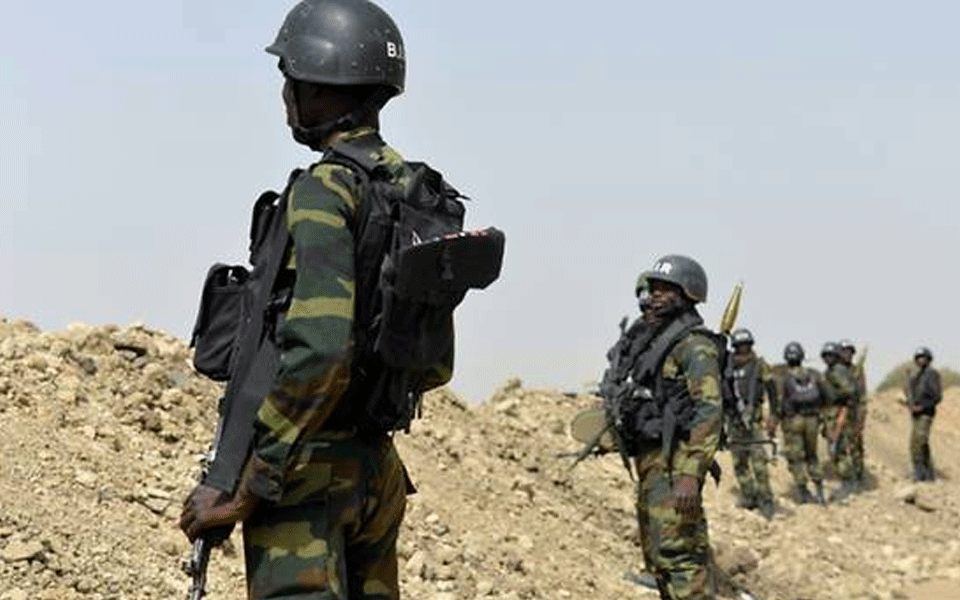Yanound, Nov 5 : Seventy-nine school students were kidnapped on Monday in an English-speaking region of Cameroon where separatists are fighting an armed campaign for independence, a government source said.
The students were abducted along with their principal, a teacher and a driver, the official said, as a source at the school confirmed the kidnapping of the pupils.
They were enrolled at the Presbyterian Secondary School in Bamenda, capital of Cameroon's Northwest Region -- one of two regions hit by attacks by anglophone militants that have met with a brutal crackdown by the authorities.
"The search for the hostages has been launched -- every man has been called in," the government source said, speaking after a crisis meeting.
The kidnapping -- the gravest incident so far in 13 months of unrest -- coincides with an upsurge of political tensions in the majority French-speaking country.
It comes after elections on October 7 that saw President Paul Biya, 85, who has ruled the country with an iron fist for 35 years, secure a seventh term in office.
Biya was credited with 71.3 per cent of the vote, although the ballot was marred by allegations of widespread fraud, low voter turnout and violence.
He takes his oath of office on Tuesday.
Around a fifth of Cameroon's 22 million people are English-speaking -- a minority whose presence dates back to the colonial period.
Cameroon, once a German colony, was divided between Britain and France after World War I.
The French colony gained independence in 1960, becoming Cameroon. The following year, the British-ruled Southern Cameroons was amalgamated into it, giving rise to the Northwest and Southwest regions.
But resentment at perceived discrimination at the hands of the francophone majority, especially in education and the judiciary, began to build.
In 2016, demands for greater autonomy grew but met with a rebuff by Biya.
As radicals took ascendancy, the anglophone movement declared the creation of the "Republic of Ambazonia" in the Northwest and neighbouring Southwest Region on October 1, 2017.
No country has recognised the self-declared state.
The separatists have gunned down troops and police, boycotted and torched schools and attacked other perceived symbols of the Cameroonian state.
The authorities have responded with a massive crackdown by police and troops.
At least 400 civilians have been killed this year as well as more than 175 members of the security forces, according to a toll compiled by non-governmental organisations.
According to UN figures, 246,000 people in the Southwest Region have fled their homes, and 25,000 have sought shelter in neighbouring Nigeria, many of them living hand-to-mouth in the forests.
Estimates of displaced people in the Northwest Region are not available.
Let the Truth be known. If you read VB and like VB, please be a VB Supporter and Help us deliver the Truth to one and all.
Hyderabad (PTI): Telangana Chief Minister A Revanth Reddy met Union Home Minister Amit Shah in Delhi on Wednesday night and urged him to increase the sanctioned strength of IPS officers to the state in view of its growing administrative and security needs.
The two leaders also discussed the recent surrender of several senior Maoist leaders before the Telangana Police and other issues.
"During the meeting, the two leaders discussed the issue of Maoist surrenders and their rehabilitation. The chief minister informed Shah that significant improvements in policing have taken place in Telangana over the past two years," an official release here said.
Highlighting that 591 Maoists have laid down their arms and joined the mainstream of society during this period, the chief minister said the state government was providing them compensation and rehabilitation assistance as per the rules.
He requested the Union home minister to extend financial support from the central government for development works in the backward regions of the state.
Reddy also urged Shah to increase the sanctioned strength of IPS officers to the state from 83 to 105 in line with the state's growing administrative and security needs, the statement said.
The first cadre review after the formation of Telangana was conducted in 2016, while the next review, due in 2021, was delayed and finally carried out in 2025. Even then, only seven additional IPS officers were allocated to the state, the chief minister informed Shah and requested that the third cadre review be conducted in 2026 as per the schedule.
Reddy explained that Telangana, like the rest of the country, is facing several modern challenges, including cybercrime, drug trafficking, white-collar crimes, and other emerging security threats.
He highlighted the reorganisation of the Hyderabad, Cyberabad, and Malkajgiri Police Commissionerates, the proposed formation of the Future City Commissionerate and the rapidly growing population in Hyderabad to underline the increasing administrative requirements of the state.





